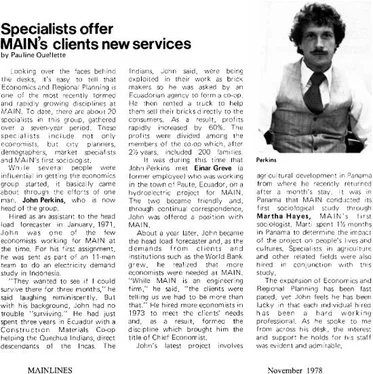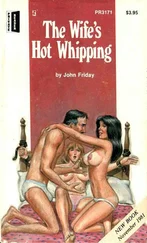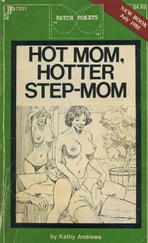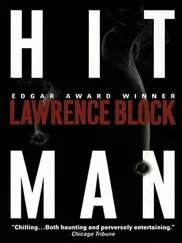John Perkins - Confessions of an Economic Hit Man
Здесь есть возможность читать онлайн «John Perkins - Confessions of an Economic Hit Man» весь текст электронной книги совершенно бесплатно (целиком полную версию без сокращений). В некоторых случаях можно слушать аудио, скачать через торрент в формате fb2 и присутствует краткое содержание. Жанр: economics, на английском языке. Описание произведения, (предисловие) а так же отзывы посетителей доступны на портале библиотеки ЛибКат.
- Название:Confessions of an Economic Hit Man
- Автор:
- Жанр:
- Год:неизвестен
- ISBN:нет данных
- Рейтинг книги:4 / 5. Голосов: 1
-
Избранное:Добавить в избранное
- Отзывы:
-
Ваша оценка:
- 80
- 1
- 2
- 3
- 4
- 5
Confessions of an Economic Hit Man: краткое содержание, описание и аннотация
Предлагаем к чтению аннотацию, описание, краткое содержание или предисловие (зависит от того, что написал сам автор книги «Confessions of an Economic Hit Man»). Если вы не нашли необходимую информацию о книге — напишите в комментариях, мы постараемся отыскать её.
Confessions of an Economic Hit Man — читать онлайн бесплатно полную книгу (весь текст) целиком
Ниже представлен текст книги, разбитый по страницам. Система сохранения места последней прочитанной страницы, позволяет с удобством читать онлайн бесплатно книгу «Confessions of an Economic Hit Man», без необходимости каждый раз заново искать на чём Вы остановились. Поставьте закладку, и сможете в любой момент перейти на страницу, на которой закончили чтение.
Интервал:
Закладка:
John Perkins
Confessions of an Economic Hit Man
To my mother and father, Ruth Moody and Jason Perkins, who taught me about love and living and instilled in me the courage that enabled me to write this book.
Preface
Economic hit men (EHMs) are highly paid professionals who cheat countries around the globe out of trillions of dollars. They funnel money from the World Bank, the U.S. Agency for International Development (USAID), and other foreign “aid” organizations into the coffers of huge corporations and the pockets of a few wealthy families who control the planet’s natural resources. Their tools include fraudulent financial reports, rigged elections, payoffs, extortion, sex, and murder. They play a game as old as empire, but one that has taken on new and terrifying dimensions during this time of globalization.
I should know; I was an EHM.
I wrote that in 1982, as the beginning of a book with the working title, Conscience of an Economic Hit Man . The book was dedicated to the presidents of two countries, men who had been my clients, whom I respected and thought of as kindred spirits — Jaime Roldós, president of Ecuador, and Omar Torrijos, president of Panama. Both had just died in fiery crashes. Their deaths were not accidental. They were assassinated because they opposed that fraternity of corporate, government, and banking heads whose goal is global empire. We EHMs failed to bring Roldós and Torrijos around, and the other type of hit men, the CIA-sanctioned jackals who were always right behind us, stepped in.
I was persuaded to stop writing that book. I started it four more times during the next twenty years. On each occasion, my decision to begin again was influenced by current world events: the U.S. invasion of Panama in 1989, the first Gulf War, Somalia, the rise of Osama bin Laden. However, threats or bribes always convinced me to stop.
In 2003, the president of a major publishing house that is owned by a powerful international corporation read a draft of what had now become Confessions of an Economic Hit Man . He described it as “a riveting story that needs to be told.” Then he smiled sadly, shook his head, and told me that since the executives at world headquarters might object, he could not afford to risk publishing it. He advised me to fictionalize it. “We could market you in the mold of a novelist like John Le Carré or Graham Greene.”
But this is not fiction. It is the true story of my life. A more courageous publisher, one not owned by an international corporation, has agreed to help me tell it.
This story must be told. We live in a time of terrible crisis — and tremendous opportunity. The story of this particular economic hit man is the story of how we got to where we are and why we currently face crises that seem insurmountable. This story must be told because only by understanding our past mistakes will we be able to take advantage of future opportunities; because 9/11 happened and so did the second war in Iraq; because in addition to the three thousand people who died on September 11, 2001, at the hands of terrorists, another twenty-four thousand died from hunger and related causes. In fact, twenty-four thousand people die every single day because they are unable to obtain life-sustaining food. 1Most importantly, this story must be told because today, for the first time in history, one nation has the ability, the money, and the power to change all this. It is the nation where I was born and the one I served as an EHM: the United States of America.
What finally convinced me to ignore the threats and bribes?
The short answer is that my only child, Jessica, graduated from college and went out into the world on her own. When I recently told her that I was considering publishing this book and shared my fears with her, she said, “Don’t worry, dad. If they get you, I’ll take over where you left off. We need to do this for the grandchildren I hope to give you someday!” That is the short answer.
The longer version relates to my dedication to the country where I was raised, to my love of the ideals expressed by our Founding Fathers, to my deep commitment to the American republic that today promises “life, liberty, and the pursuit of happiness” for all people, everywhere, and to my determination after 9/11 not to sit idly by any longer while EHMs turn that republic into a global empire. That is the skeleton version of the long answer; the flesh and blood are added in the chapters that follow.
This is a true story. I lived every minute of it. The sights, the people, the conversations, and the feelings I describe were all a part of my life. It is my personal story, and yet it happened within the larger context of world events that have shaped our history, have brought us to where we are today, and form the foundation of our children’s futures. I have made every effort to present these experiences, people, and conversations accurately. Whenever I discuss historical events or re-create conversations with other people, I do so with the help of several tools: published documents; personal records and notes; recollections — my own and those of others who participated; the five manuscripts I began previously; and historical accounts by other authors, most notably recently published ones that disclose information that formerly was classified or otherwise unavailable. References are provided in the endnotes, to allow interested readers to pursue these subjects in more depth. In some cases, I combine several dialogues I had with a person into one conversation to facilitate the flow of the narrative.
My publisher asked whether we actually referred to ourselves as economic hit men. I assured him that we did, although usually only by the initials. In fact, on the day in 1971 when I began working with my teacher Claudine, she informed me, “My assignment is to mold you into an economic hit man. No one can know about your involvement — not even your wife.” Then she turned serious. “Once you’re in, you’re in for life.”
Claudine’s role is a fascinating example of the manipulation that underlies the business I had entered. Beautiful and intelligent, she was highly effective; she understood my weaknesses and used them to her greatest advantage. Her job and the way she executed it exemplify the subtlety of the people behind this system.
Claudine pulled no punches when describing what I would be called upon to do. My job, she said, was “to encourage world leaders to become part of a vast network that promotes U.S. commercial interests. In the end, those leaders become ensnared in a web of debt that ensures their loyalty. We can draw on them whenever we desire — to satisfy our political, economic, or military needs. In turn, they bolster their political positions by bringing industrial parks, power plants, and airports to their people. The owners of U.S. engineering/construction companies become fabulously wealthy.”
Today we see the results of this system run amok. Executives at our most respected companies hire people at near-slave wages to toil under inhuman conditions in Asian sweatshops. Oil companies wantonly pump toxins into rain forest rivers, consciously killing people, animals, and plants, and committing genocide among ancient cultures. The pharmaceutical industry denies lifesaving medicines to millions of HIV — infected Africans. Twelve million families in our own United States worry about their next meal. 2The energy industry creates an Enron. The accounting industry creates an Andersen. The income ratio of the one-fifth of the world’s population in the wealthiest countries to the one-fifth in the poorest went from 30 to 1 in 1960 to 74 to 1 in 1995. 3The United States spends over $87 billion conducting a war in Iraq while the United Nations estimates that for less than half that amount we could provide clean water, adequate diets, sanitation services, and basic education to every person on the planet. 3
Читать дальшеИнтервал:
Закладка:
Похожие книги на «Confessions of an Economic Hit Man»
Представляем Вашему вниманию похожие книги на «Confessions of an Economic Hit Man» списком для выбора. Мы отобрали схожую по названию и смыслу литературу в надежде предоставить читателям больше вариантов отыскать новые, интересные, ещё непрочитанные произведения.
Обсуждение, отзывы о книге «Confessions of an Economic Hit Man» и просто собственные мнения читателей. Оставьте ваши комментарии, напишите, что Вы думаете о произведении, его смысле или главных героях. Укажите что конкретно понравилось, а что нет, и почему Вы так считаете.












